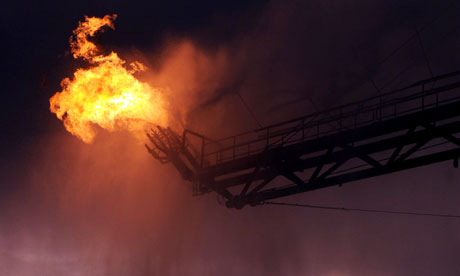For a concise, readable summary of iTulip concepts developed over the past 16 years and a vision of a challenging next decade and how to navigate it, read Eric Janszen's book "Post Catastrophe Economy".
Join the discussion of today's events with a wide range of professionals with an interest in economics and finance.
Register to join our 50,000 plus member registered community from 78 countries today.
Subscribe to iTulip Select for access to the longest running, deep, accurate, and unvarnished macro economic trends analysis and forecasting available, since 1998.
If this is your first visit, be sure to
check out the FAQ by clicking the
link above. You may have to register
before you can post: click the register link above to proceed. To start viewing messages,
select the forum that you want to visit from the selection below.
Working...
|  Pat Campbell, at right in Kuwait in 1991, is helping BP figure out a way to seal its blown-out well 5,000 feet below the surface in the Gulf of Mexico.
Pat Campbell, at right in Kuwait in 1991, is helping BP figure out a way to seal its blown-out well 5,000 feet below the surface in the Gulf of Mexico.
Comment